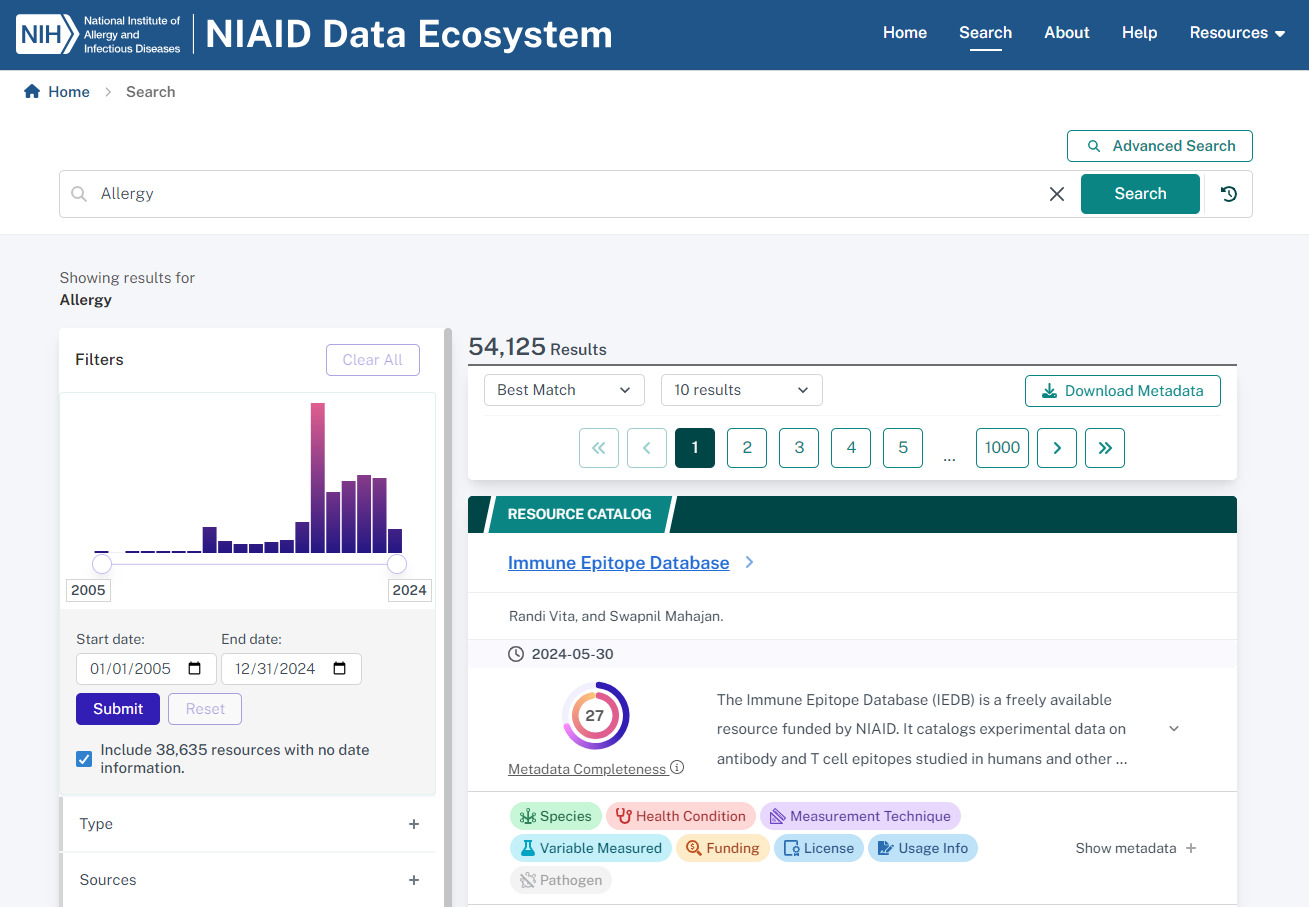The NIAID Data Ecosystem Discovery Portal allows exploring Infectious and Immune-mediated Disease (IID) data across many repositories through Resource Catalogs (collections of scientific information or research outputs) and Dataset Repositories (collections of data of a particular experimental type) that are currently included in the NIAID Data Ecosystem.
The NIAID Data Ecosystem Discovery Portal supports exploration of Infectious and Immune-mediated Disease (IID) data across diverse sources. It accomplishes this through two key database types:
- Resource Catalogs: These act as curated collections of scientific information and research outputs related to IIDs.
- Dataset Repositories: These house data collections specifically focused on various IID experiments.
Each of these is powered by different data provider engines and repositories:
- The Data Discovery Engine uses BioThings APIs with “BioThings” refering to objects of any biomedical entity-type represented in the biological knowledge space, such as genes, genetic variants, drugs, chemicals, diseases. The engine connects to data from NAIID repositories such as:
- The Vivli platform which includes an independent data repository, in-depth search engine and a secure research environment connecting to study-specific data such as:
- Cohort Study of Immune Mechanisms, Genetic Factors, and Clinical and Environmental Characteristics Associated With the Occurrence and Clinical Outcome of Food Allergy (CoFAR2).
- OmicsDI which is an Omics Discovery Index that retrieves information from data providers via an XML file that contains the information from all datasets in a given database. OmicsDI indexes datasets deposited in repositories like Europe PMC (Europe PubMed Central). The information from such dataset may be linked to a journal publication such as:
- Quantitative trait loci for CD4 by Ferreira et al 2009.
- ImmPort which is an open access platform for research data sharing with datasets such as :
- SDY1514 – An Observational Study of Childhood Food Allergy (CoFAR2).
- VEupathdb which is the Eukaryotic Pathogen, Vector and Host Informatics Resource (VEuPathDB) , one of two Bioinformatics Resource Centers (BRCs) funded NIAID, with additional support from the Wellcome Trust (UK). It provides access o datsets such as:
- Genome analysis of a major urban malaria vector mosquito, Anopheles stephensi with a publication by Jiang et al. 2014
- The Immune Tolerance Network (ITN) is an international clinical research consortium sponsored by NIAID.
Other data providers are NCBI GEO, NCBI SRA, Zenodo, Qiita, Dryad, Mendely Data, Harvard Dataverse.
Overall, the portal streamlines access to valuable data within the NIAID Data Ecosystem.

